Our students come to us with deep, damaging beliefs about intelligence & IQ.
I *really* wanted to teach students about intelligence last fall, but I found myself unprepared. After DAYS learning, I was angry & tired & I dumped everything into the best lesson I could manage then.
I *really* wanted to teach students about intelligence last fall, but I found myself unprepared. After DAYS learning, I was angry & tired & I dumped everything into the best lesson I could manage then.
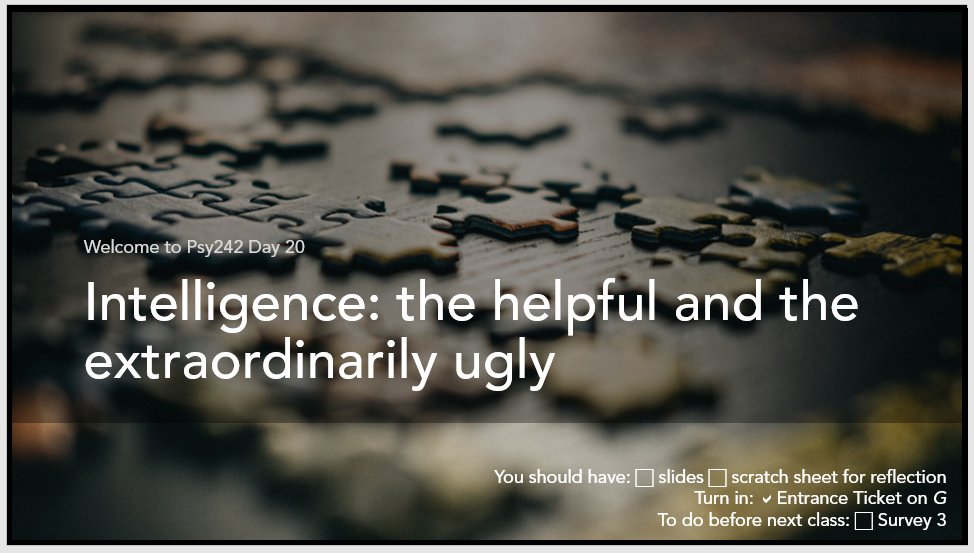
These materials are woefully short of perfect. I think that executed wrong, they could be damaging, so I've put off sharing them.
But as educators, we need to ask ourselves:
Are we empowering students to fight scientific racism wherever they see it, including their own minds?
But as educators, we need to ask ourselves:
Are we empowering students to fight scientific racism wherever they see it, including their own minds?
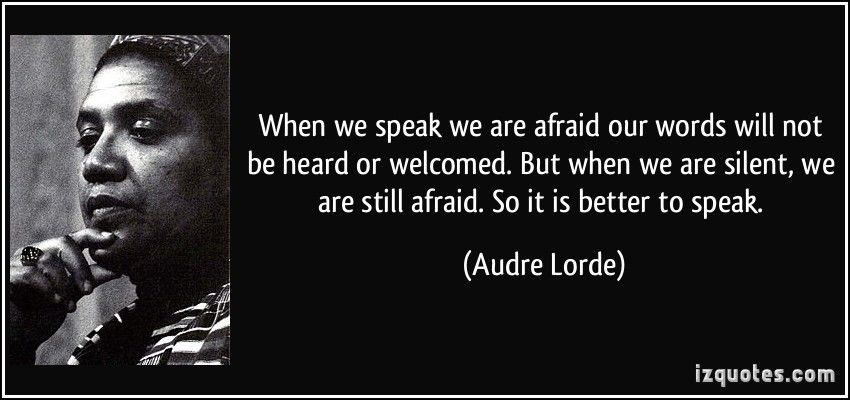
I looked at many cog textbooks. They skirted the hard questions completely.
People I love & respect recommended Ritchie's short book. Here is the page on Galton, a full-blown OG scientific racist who COINED THE TERM EUGENICS, which is positively FAWNING ("a true genius"). 😡

People I love & respect recommended Ritchie's short book. Here is the page on Galton, a full-blown OG scientific racist who COINED THE TERM EUGENICS, which is positively FAWNING ("a true genius"). 😡
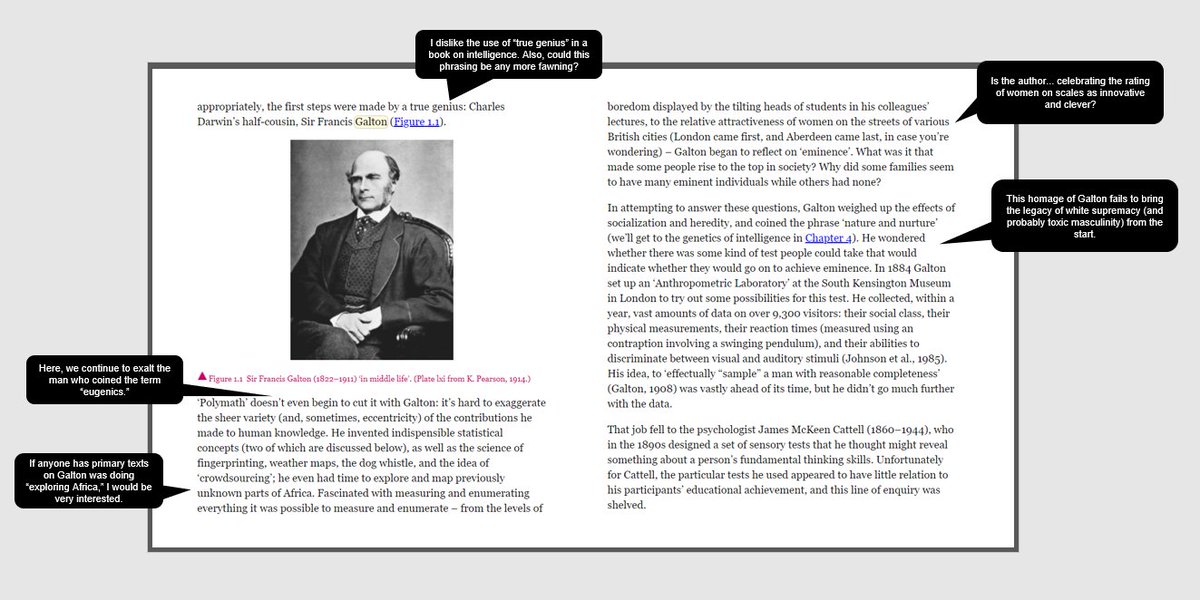
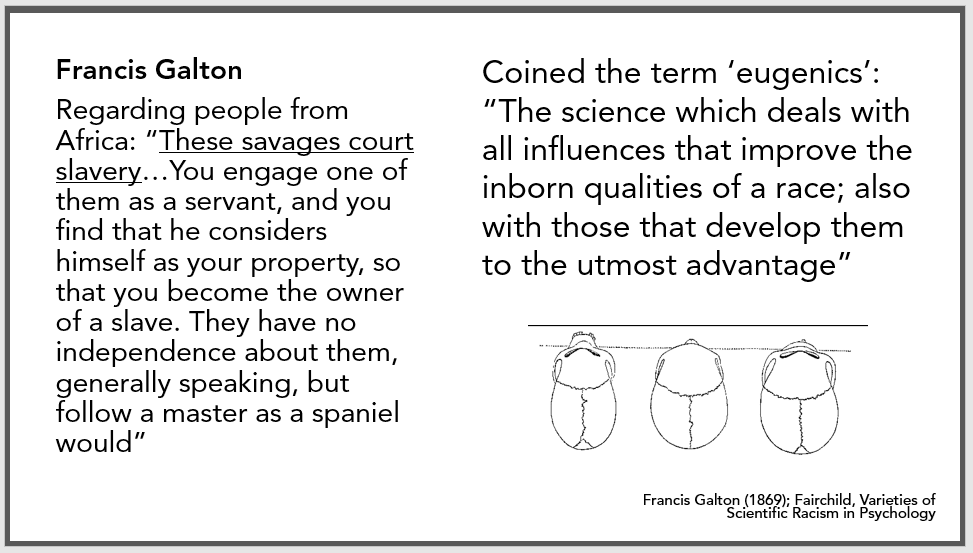
For one take on Galton's absolute shittiness, check out this PBS column: pbs.org/newshour/natio…
"We come today not to praise Francis Galton but to bury him along with his faulty and dangerous pseudoscience of eugenics."
"We come today not to praise Francis Galton but to bury him along with his faulty and dangerous pseudoscience of eugenics."
So the primary text for my lesson ended up being @Radiolab's extraordinary 6-part series on intelligence, "G".
I loved that it went past the simplistic "some parts are GOOD, some are BAD 🙃" to face the complexity & power of intelligence testing head on.
wnycstudios.org/podcasts/radio…
I loved that it went past the simplistic "some parts are GOOD, some are BAD 🙃" to face the complexity & power of intelligence testing head on.
wnycstudios.org/podcasts/radio…
Students listened to a "G" episode before the 1st lesson, with an "entrance ticket" due that day.
Students' reflections let me peek into their headspace before starting, and the ep provided rich common ground for discussion.
Another episode was assigned as further "reading."
Students' reflections let me peek into their headspace before starting, and the ep provided rich common ground for discussion.
Another episode was assigned as further "reading."
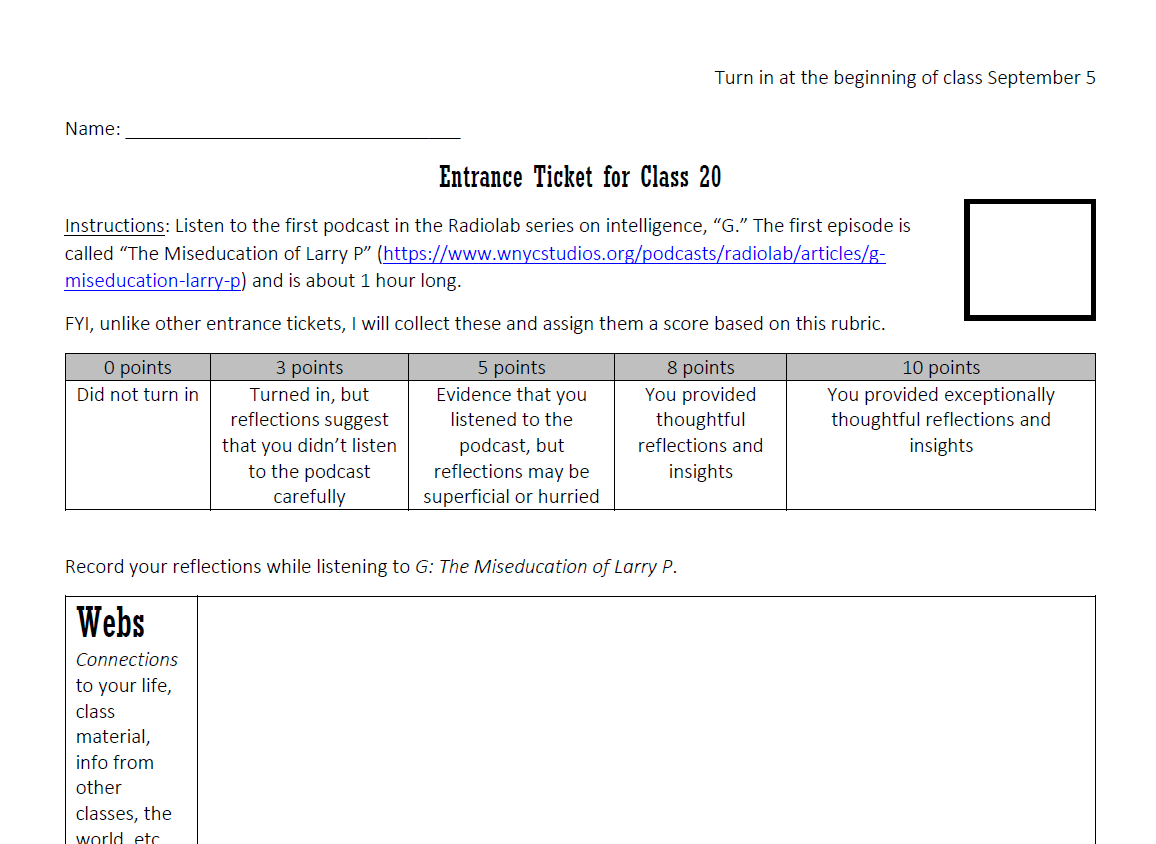
Some slides try to de-mystify IQ testing at a high level.
For example, we tried this matrix reasoning task. It's tricky.
There's an intuition that it's capturing SOME signal about cognition. And that it makes sense how this bundle of tasks would correlate with meaningful DVs.

For example, we tried this matrix reasoning task. It's tricky.
There's an intuition that it's capturing SOME signal about cognition. And that it makes sense how this bundle of tasks would correlate with meaningful DVs.
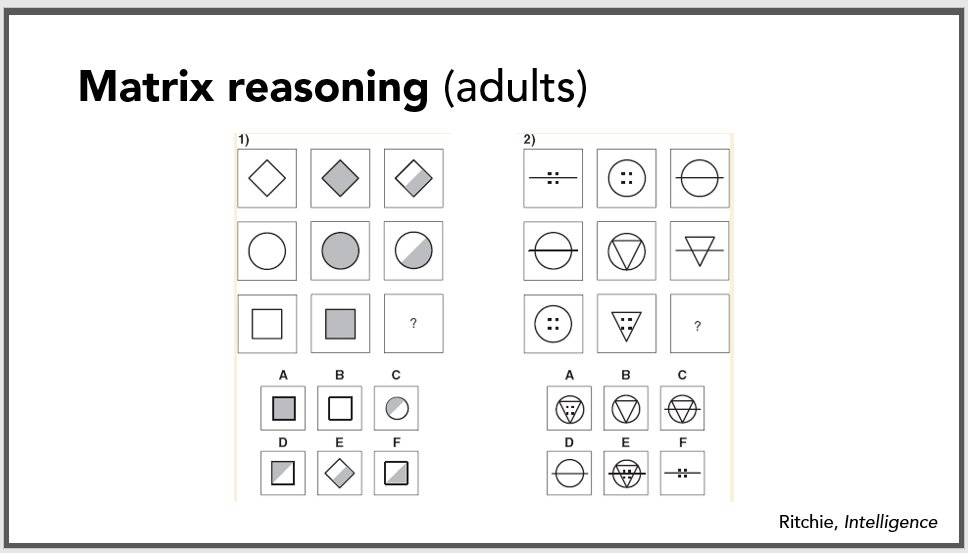

But it's also clear how RIDICULOUS it would be to pare down a HUMAN BEING'S worth to how well they do on the equivalent of Psychology Party Mini-Games.
Questions around measurement, operationalization, validity -- they abound.
Questions around measurement, operationalization, validity -- they abound.
The part I was SUPER scared to tackle in class came out of students reflecting, "HOW IS THIS STILL HAPPENING?!"
There is racism baked FUNDAMENTALLY into the cognitive sciences. We can't ignore it.
But I worry that the way I presented it just wasn't right or could re-traumatize.

There is racism baked FUNDAMENTALLY into the cognitive sciences. We can't ignore it.
But I worry that the way I presented it just wasn't right or could re-traumatize.
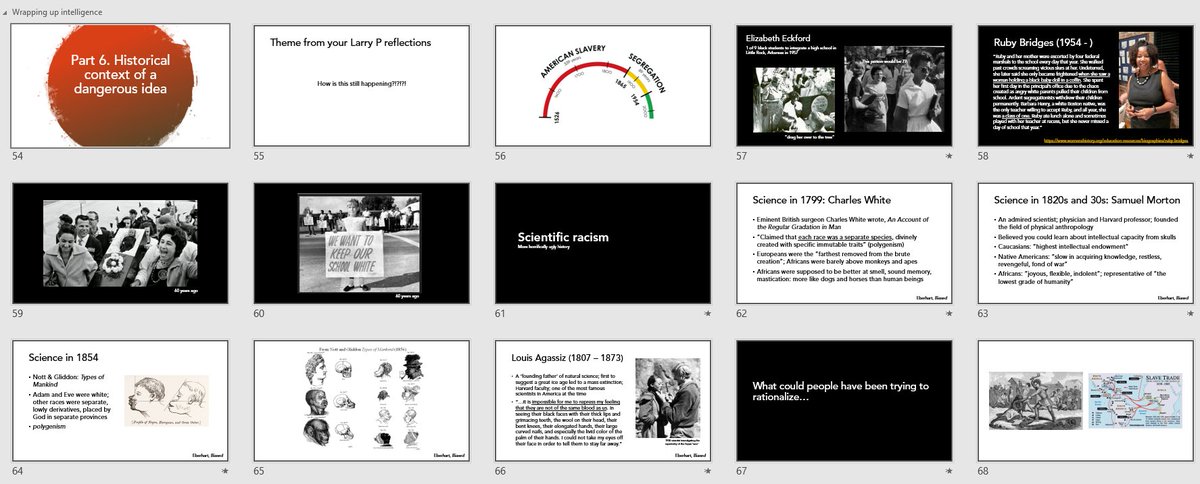
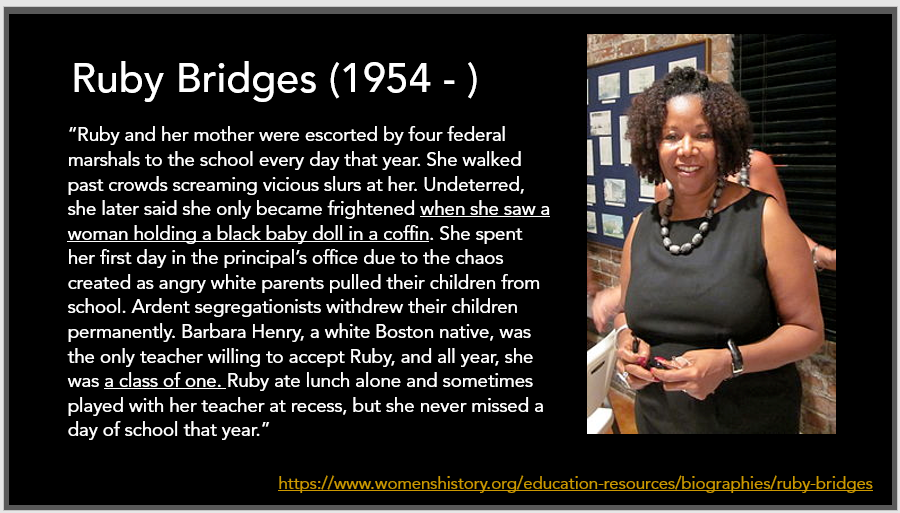
So, here are slides & teaching resources from cognitive psych lessons on intelligence.
day 1: osf.io/xde6h
day 2: osf.io/az8ec
I hope someone uses this as a starting place. We have a lot of work to do. ✊ #BlackLivesMatter #Academics4BlackLives
day 1: osf.io/xde6h
day 2: osf.io/az8ec
I hope someone uses this as a starting place. We have a lot of work to do. ✊ #BlackLivesMatter #Academics4BlackLives
Epilogue
One day I'll put more of my course resources up: osf.io/z5uva
Thank you for @CharAtDuke ♥️ for rooting out my typos.
There's so much context about a course I can't fit into tweets. DM me for a thought partner.
Wash your hands. Dismantle white supremacy. 👋
One day I'll put more of my course resources up: osf.io/z5uva
Thank you for @CharAtDuke ♥️ for rooting out my typos.
There's so much context about a course I can't fit into tweets. DM me for a thought partner.
Wash your hands. Dismantle white supremacy. 👋
• • •
Missing some Tweet in this thread? You can try to
force a refresh





